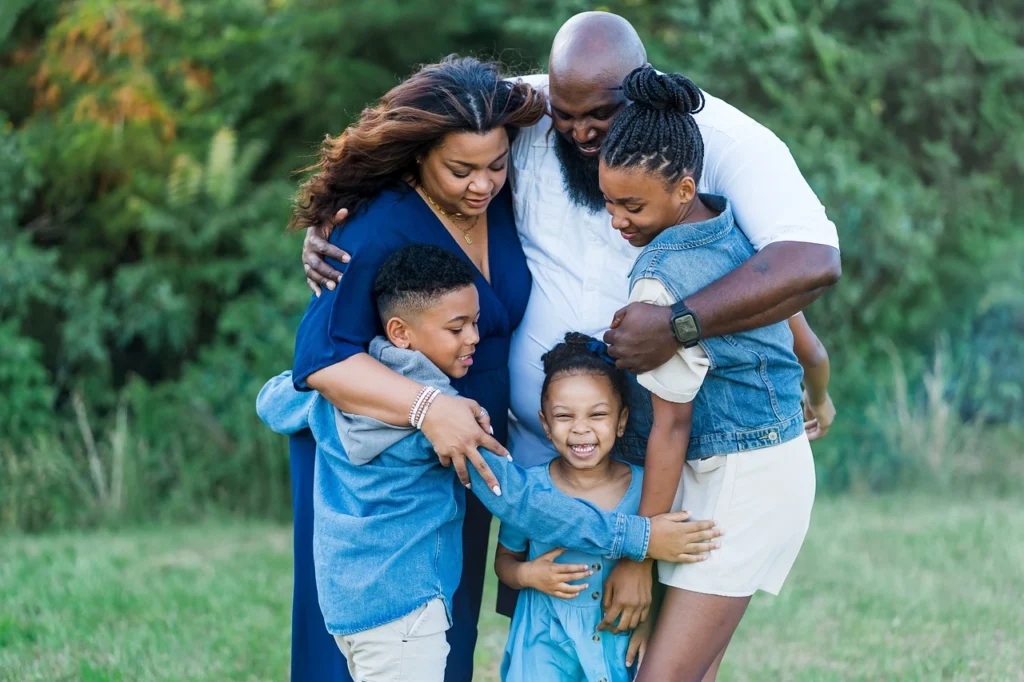Table of Contents
Family connections are the cornerstone of our emotional well-being, offering a sense of love, security, and identity. But when these bonds are fractured by estrangement, the emotional toll can be devastating. If you’re struggling to understand how estrangement has affected your family relationships, you’re not alone. In this article, we’ll explore why estrangement occurs, the ways it damages relationships, and how you can take steps toward healing or acceptance.

What Is Family Estrangement? A Brief Overview
Family estrangement occurs when there’s a prolonged breakdown in communication or connection between family members. This isn’t just about a single argument or temporary disagreement; estrangement involves ongoing distance, often fueled by unresolved conflicts or deep-seated emotional pain.
- Prevalence: Studies show that up to 27% of adults report being estranged from a close family member.
- Implications: The impact extends beyond the individuals directly involved, creating ripples across extended family dynamics, social networks, and even future generations.
Estrangement often stems from unmet expectations, conflicting values, or traumatic experiences. Regardless of the cause, its effects are profound and far-reaching.
The Emotional Toll of Family Estrangement
Estrangement doesn’t just break relationships; it breaks hearts. The emotional toll is often invisible but deeply felt.
The Psychological Impact on You
- Stress and Anxiety: The uncertainty of unresolved relationships can create chronic stress, leading to mental health challenges.
- Identity Struggles: Family often shapes our sense of self. Estrangement can leave you questioning your worth or your place in the world.
- Grief and Loss: Even when estrangement feels necessary, it’s natural to mourn the loss of what could have been.
The Ripple Effect on Others
Estrangement doesn’t just affect the two parties involved. Extended family members may feel caught in the middle, forced to take sides or navigate awkward family events. The guilt and blame cycle can perpetuate tension and stress for everyone involved.
Why Family Estrangement Happens
Estrangement doesn’t happen in a vacuum. Understanding its root causes can provide clarity and open the door to potential reconciliation.
Common Causes
- Miscommunication: Misunderstandings left unresolved can snowball into larger issues.
- Toxic Behaviors: Abuse, neglect, or manipulative dynamics often make distance a necessary survival tool.
- Value Clashes: Differing beliefs about religion, politics, or lifestyle choices can create significant rifts.

Triggers and Misunderstandings
- Generational Gaps: Parents and children may hold fundamentally different expectations or worldviews.
- External Stressors: Financial hardships, caregiving responsibilities, or major life changes can exacerbate tensions.
- Cultural Expectations: Societal pressures and norms often play a role, especially in families with strong traditions.
The Devastating Consequences of Estrangement
The effects of estrangement reach far beyond the absence of communication.
How Estrangement Wrecks Relationships
- Loss of Trust: Without trust, communication falters, and misunderstandings multiply.
- Emotional Disconnect: Estrangement often leads to a profound sense of isolation, as emotional ties weaken or sever completely.
Long-Term Impact
- Broken Traditions: Family gatherings and shared memories become a thing of the past.
- Impact on Children: Estrangement creates gaps in family history and disconnects younger generations from their roots.
Steps to Heal and Rebuild Family Relationships
While reconciliation may not always be possible, taking proactive steps can often lead to healing and understanding.
Understanding the Path to Reconciliation
- Self-Reflection: Begin by examining your own role in the estrangement. Are there unresolved feelings or actions you need to address?
- Reaching Out: When you’re ready, consider sending a thoughtful, non-confrontational message to open the door to communication.
- Seeking Mediation: A neutral third party, such as a therapist or mediator, can help facilitate difficult conversations.
Maintaining Healthy Relationships
- Setting Boundaries: Clearly define what behaviors are acceptable and what’s off-limits.
- Building Trust: Take small, consistent steps to rebuild trust, such as keeping promises and showing empathy.
When Reconciliation Isn’t Possible
In some cases, estrangement is necessary for your mental health and well-being. Accepting this reality doesn’t mean giving up hope; it means finding peace within yourself and seeking support from friends or chosen family.

FAQs About Family Estrangement
Why do family estrangements happen so often?
Estrangement often stems from unresolved conflicts, miscommunication, or deep-seated differences in values and lifestyles.
How can I rebuild trust with an estranged family member?
Start with honest self-reflection, initiate respectful communication, and take gradual steps to rebuild trust. Professional mediation can also help.
Is it okay to let go of a toxic family relationship?
Absolutely. Your mental health and well-being should always come first. Letting go of toxic relationships can be a form of self-care.
Recipe for Rebuilding Trust
| Ingredient | Amount Needed |
|---|---|
| Open communication | Daily practice |
| Empathy | Unlimited |
| Patience | As much as required |
| Forgiveness | To taste |
Conclusion: Finding Hope Amidst the Pain
Estrangement can feel like an insurmountable barrier, but understanding its roots and taking deliberate steps can lead to healing. Whether you’re working toward reconciliation or learning to accept and move forward, remember that healing begins with you. By fostering empathy, setting boundaries, and seeking support, you can find a path to peace.
Ready to take the first step? Share your thoughts in the comments or reach out for support. Together, we can navigate the complexities of family relationships and find a way forward.
